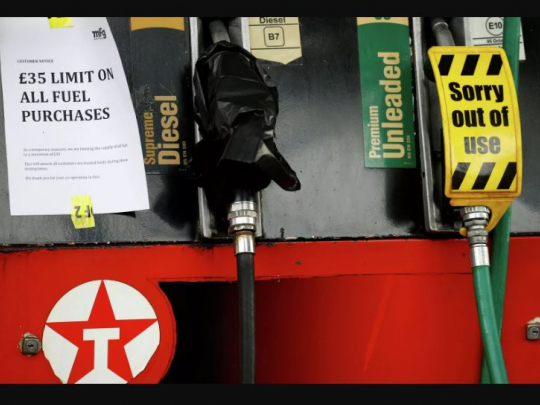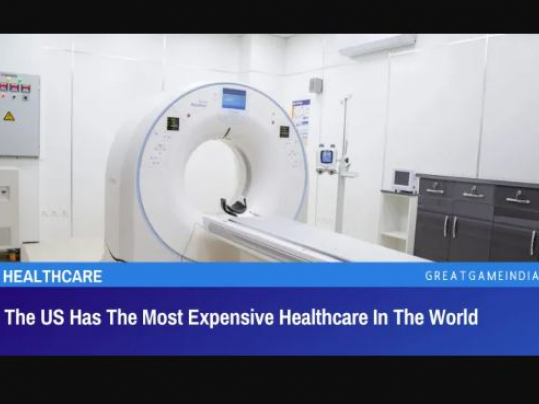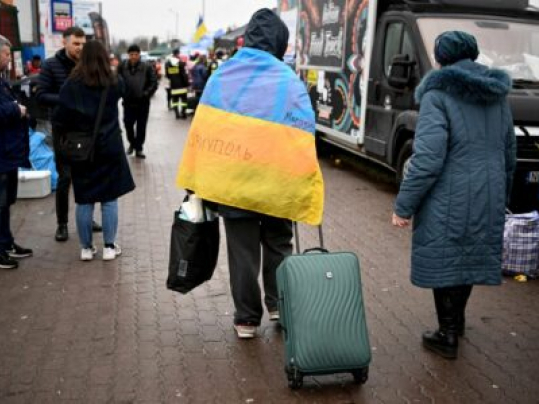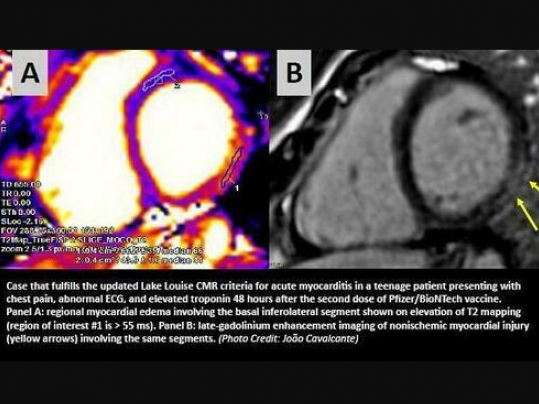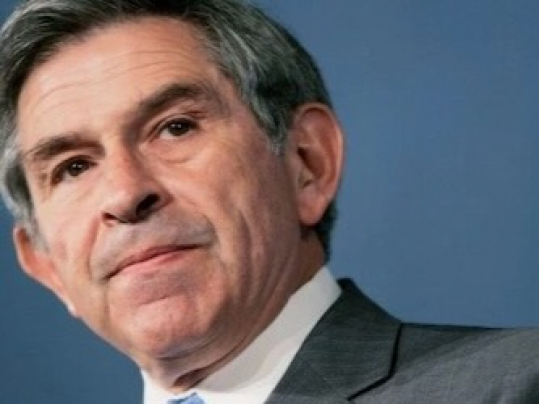Prime Minister Boris Johnson has claimed that the fuel crisis in the UK was “stabilising” as he made his first public comments after days of chaos, queues and panic buying. He urged motorists to go about their business "in the normal way", adding that supplies were coming back to forecourts.
Despite the UK government’s measures to deal with the shortfall of heavy goods vehicle (HGV) drivers, petrol stations are likely to face
supply disruption for up to a month, industry figures cited by The Times have warned.
Acknowledging that “tentative” signs of improvement are visible, insiders cited by the outlet claim it may require weeks to restock forecourts, even if the panic buying subsides. BP plc, the British multinational oil and gas company, is expected to take at least a month to tackle supply disruptions, added the sources.
As some insiders have been quoted as saying it was “still too early to call” whether the fuel situation would continue improving, others hesitated to say that an end to the crisis was visible. Gordon Balmer, Petrol Retailers Association (PRA) Executive Director, has underscored that there are “early signs that the crisis at pumps is ending”.
“Fuel stocks remain normal at refineries and terminals, although deliveries have been reduced,” he stated.
‘Tentative’ Signs of Improvement
Prime Minister Boris Johnson made his first official comments on the fuel crisis gripping the country on Tuesday, as he sought to allay fears by insisting the situation was “stabilising” after days of chaos at petrol stations.
Insisting that supplies were coming back to forecourts, the prime minister said he understood the frustration felt by motorists who have been panic buying fuel, but urged them to go about their business "in the normal way".
“What we want to do is to make sure we have all the preparations needed to get through to Christmas and beyond, not just in supply for petrol stations but all parts of the supply chain,” said Johnson to reporters.
“We now are starting to see the situation improve; we’re hearing from (the) industry that supplies are coming back on to the forecourt in the normal way,” said the Prime Minister. According to Johnson, a “slightly misleading” account of the shortages of HGV drivers had triggered an “understandable surge in public demand”.
“The actual number of lorry drivers that we’re short in that particular sector isn’t very big. But generally there is a shortage in that profession around the world. And what we want to see is an emphasis on high wage, a high-skill, a high-productivity approach to our economy,” said Boris Johnson, as he added that he didn’t think people in his country wanted to “fix all our problems with uncontrolled immigration.”
Earlier,
Transport Secretary Grant Shapps also sought to allay concerns, saying that the pressure on petrol stations was beginning to ease.
“There are now the first very tentative signs of stabilisation in forecourt storage which won't be reflected in the queues as yet… But it is the first time that we have seen more petrol actually in the petrol stations. The sooner we can all return to our normal buying habits, the sooner the situation will return to normal,” he told reporters.
The Petrol Retailers Association, which represents around 5,500 independent forecourts across the UK, similarly emphasised there were “early signs” that the crisis was ending. While late last week it stated that 50%-90% of its members had reported running dry, on Tuesday the organisation said the figure had fallen to 37%.
The PRA chairman Brian Madderson said that while demand was down from the “extreme” levels seen at the weekend, it was still “well above the norm”.
The shortage of about 90,000 heavy goods
vehicle drivers is believed to affect supplies of a number of goods, despite sources dismissing fears of supermarkets shelves running bare. They have acknowledged, however, that the number of different brand products available may be limited.
Emergency Measures
Downing Street has put in place an array of emergency measures to deal with the crisis, as government ministers and
oil companies, such as Shell, ExxonMobil and Greenergy have pointed to "temporary spikes in customer demand - not a national shortage of fuel".
Ministers have issued a total of 10,500 temporary visas for lorry drivers and poultry workers to last up until Christmas.
After Brexit, many European drivers went back to their home countries because of the additional border red tape, with the COVID-19 pandemic also triggering unexpected changes, forcing more foreign drivers to leave the UK.
There has also been a reported backlog in HGV driver tests due to the pandemic. They have also suspended some competition rules for the fuel delivery industry to facilitate information-sharing by companies and prioritisation of parts of the country most at need. The army is being placed on standby to drive tankers if required.
The official request on that score was made on Monday and approved by the Ministry of Defence late on Tuesday. While soldiers are not yet being deployed, the measure means that military personnel can begin specialist training to learn how to drive fuel tankers. Defence Secretary Ben Wallace said that up to 300 troops will be available for deployment if required.
According to cited sources, 150 drivers and 150 drivers' mates could be employed under Operation Escalin.
'Half-Baked' Response
The measures come as the UK Prime Minister was accused of a 'half-baked' response to the fuel crisis. Labour leader Sir Keir Starmer
slammed the government for reducing the country to “chaos” and said the haulage industry was “beyond frustrated” at the pronounced absence of any clear plan to alleviate the problems.
“The government has reduced the country to chaos as we track from crisis to crisis… The Prime Minister should take that action today, prioritise key workers and start issuing enough visas and for long enough. The strong view this morning was that three months visas won't work, they've got to be six months visas… The government is not gripping this. This problem was predictable and predicted and the government has absolutely failed to plan,” he told BBC News.
Starmer backed a proposal put forward by the Liberal Democrats and British Medical Association on Monday for key workers to be granted priority access to fuel.
Tobias Ellwood, chair of Parliament's Defence Committee, was cited as suggesting that the army be immediately mobilised, not just put on standby, to “regain public confidence” and stop the
fuel crisis.




